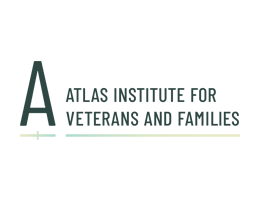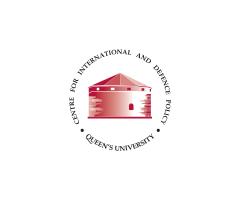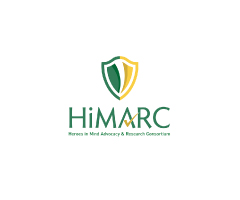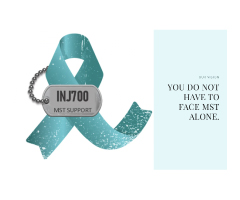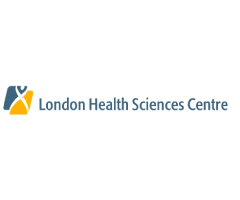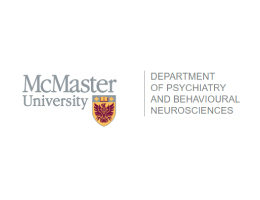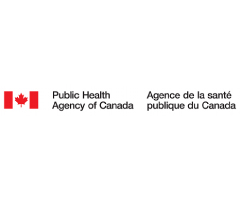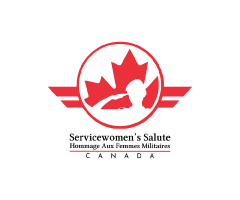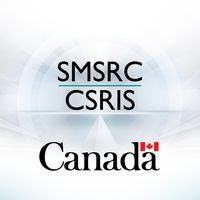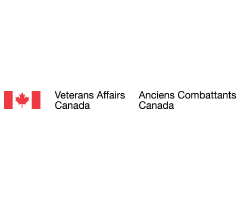A Path Forward
The Canadian Military Sexual Trauma Community of Practice, McMaster University’s Department of Psychiatry and Behavioural Neurosciences, and the Centre of Excellence on PTSD are hosting a three-part virtual symposium on Military Sexual Trauma.
This three part symposium, which began on June 3, 2021 and continues with live sessions on September 16 and 23, brings together researchers and policy leads from across universities, government departments and intermediary organizations, as well as individuals representing those with lived personal experience of MST.
Whether you are a researcher, clinician, policy-maker, frontline worker or someone who has experienced sexual harassment or sexual misconduct in the military, Military Sexual Trauma (MST) and its aftermath affects thousands of Canadians.
This event has ended. More information and resources are available below.
Content warning
This webinar may include content on difficult topics including suicide. The content may be hard to listen to and may bring up a range of emotions. We encourage you to care for your safety and well-being.
A Path Forward Part three of the three-part virtual symposium series ‘Military Sexual Misconduct and Military Sexual Trauma in Canada: A Pathway to Understanding and Action’
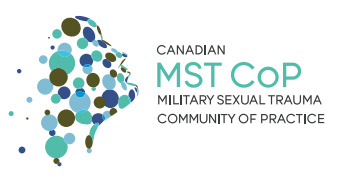
Related Resources
Speakers & Presentations
Read more about the speakers and view or download their presentations from this webinar. Note: Not all speakers have downloadable presentations available.
Dr. McKinnon serves as the Homewood Chair in Mental Health and Trauma and as Associate Professor and Associate Chair, Research, in the Department of Psychiatry and Behavioural Neurosciences at McMaster University. She is also the Research Lead in Mental Health and Addictions at St. Joseph’s Healthcare Hamilton and a Senior Scientist at Homewood Research Institute.
Dr. McKinnon completed her PhD in Psychology at the University of Toronto followed by a post-doctoral fellowship at the internationally-renowned Rotman Research Institute at Baycrest Centre. She is an elected Fellow of the Canadian Psychological Association and is dually licensed as a clinical psychologist and neuropsychologist.
Dr. McKinnon is well known for her work characterizing trauma-related illness and PTSD among military members, Veterans, first responders, and survivors of childhood abuse and trauma. She has also been involved in the development and testing of novel treatment interventions aimed at often unexplored aspects of PTSD and trauma, including guilt and shame, moral injury, dissociation, and cognitive dysfunction. Dr. McKinnon serves as the Chair of the federally-funded Centre of Excellence on PTSD’s Research Reference group and works closely with government sectors including Veterans Affairs Canada and the Canadian Armed Forces.
She has published over 100 peer-reviewed papers and chapters, and currently holds funding from the Canadian Institutes of Health Research, the Canadian Institute for Military and Veteran Health Research, Defence Canada, the Centre of Excellence on PTSD, and the Workers Safety Insurance Board of Ontario, along with numerous private foundations, including True Patriot Love, the Cowan Foundation, the Military Casualty Support Foundation, and the FDC Foundation.
Dr Alan Okros is a Full Professor in the Royal Military College, Department of Defence Studies, and is currently employed as Deputy Director Research in the Dallaire Centre of Excellence for Peace and Security, and as Special Advisor to the Chief, Professional Conduct and Culture.
As a researcher on leadership, gender equality, and diversity, Dr Okros has contributed to a range of Canadian and international projects to achieve equality objectives and enhance military operational effectiveness. As a policy entrepreneur, Dr Okros advocates for evolutions in military understandings and approaches to diversity and inclusion within the CAF and internationally including involving the military in the United States, Australia, New Zealand, Bolivia, Singapore and South Africa.
He has provided policy options for more inclusive approaches for those who are marginalized based on gendered identity or sexual orientation, including the requirements to address adverse aspects of military social construction and harmful use of social power. He serves as the Chair of IUS Canada, the Inter-University Seminar on the Armed Forces and Society – Canada.
Shoba Ranganathan is currently the Director of Operations at the Sexual Misconduct Response Centre and has been in this position since March 2021. Prior to this, she was the Chief Quality and Patient Safety Officer for the Canadian Forces Health Services (CFHS) within the Department of National Defence for ten years, focusing on quality improvement processes and evaluation of systemic risk. Shoba’s career highlights include leadership roles in quality improvement, patient safety, and external accreditation processes.
Colten joined the Canadian Armed Forces in September of 2009 from his hometown of Calgary. Like many others, Colten wanted to serve his country in the war effort against the Taliban in Afghanistan, only to find he would never be sent. Training as a Vehicle Technician on CFB Borden in 2013, Colten was instead raped by his colleagues over a disagreement involving his coworkers illicit drug use and sales out of their shared room in the Barracks. Colten now uses this experience to help influence change in the Canadian Armed Forces after releasing medically in 2020 after 10 years of service to Canada. Colten now serves as a member of the Sexual Misconduct Response Center’s (SMRC) External Advisory Council (EAC), and as the Vice-Chair of the advocacy and peer-support group, It’s Not Just 700.
Maggie joined the Canadian Armed Forces in 1980. During her 17 and half years of service she was posted to CFB Borden, CFS Beausejour, CFB Downsview where she was the subject of investigations by the Special Investigations Unit which included being questioned, surveillance, the questioning of third parties, and the search of her apartment; she was sexually harassed and harassed by your peers; she was threatened by her superior; she was harassed by Military Police who searched your room and repeatedly accused or laid unfounded charges against her; her postings were cancelled or denied; her promotion to the rank of Master Corporal was delayed. While posted to CFSAL Borden as an instructor she was sexually assaulted, got pregnant and had an abortion. After being posted to 1 ASG Edmonton with Transport Heavy Lift Unit, she took her volunteer release from service in 1997.
After leaving the CAF Maggie was employed with Honda of Canada Mtg. in Alliston On. She was a certified Achieve Global Trainer specialized in: Leadership and Teamwork for 11 years.
Maggie left Honda due to her mental health and self medicating. She struggled with her Complex PTSD and Major Depression which was untreated at the time due to the LGBTQ Purge and Military Sexual Trauma. It wasn’t until the LGBTQ Purge Class Action in 2019 was she able to reach out for help.
Since seeking help Maggie has taken her pain and put it to purpose helping others. The last two years she has worked endlessly helping others get help with psychological assessments and VAC claims. Many hours have been spent on a peer support document for MST.
To help herself with her recovery she has received certifications in Mental Health Awareness, CBT, Advanced CBT, and Anxiety Awareness. Workshops on Critical Incident Group Debriefing and Trauma Informed Care Building a Culture of Strength completed. As Maggie says, “It’s ok not to know what you don’t know, but once you do know, You Must Do Better!”.
Putting Pain to Purpose, Helping Others has been gratifying and very helpful in her own journey to recovery.
Life now for her living in the country with her service dog is meaningful and peaceful.
Sam has over 40 years of Reserve Force service and is a MST survivor. Like many others, her first assault happened during her basic recruit training when she was 17 years old.
Sam has been an active member of IJ700, now INJ700, since 2015 when she became involved in the Hands Project and created the IJ700 Instagram account for inspirational messages.
At that time she felt she had dealt with her multiple sexual assaults and constant sexual harassment well, and was enjoying a successful Canadian Armed Forces (CAF) career happily married to a Regular Force CAF spouse. However in 2016 she was again a victim of MST that was so traumatizing that it caused the loss of her full-time military position. The mental and physical trauma of this incident also led to the breakdown of her marriage as she tried to cope with the added release of unresolved previous MST, depression and hypervigilance.
With the recent assurances of the CAF to address harmful behaviours within the military and provide support for victims, Sam would like to use her extensive volunteer facilitator experience in Occupational Health & Safety, JLP Anti-Harassment, Union Conflict Resolution, federal Employee Assistance, and Ethic programs to help other MST survivors come forward and access the resources they need to enrich their healing journey. She also hopes her previous policy advisor experience at National Defence Headquarters will help to provide insights for the INJ700 group to go forward with viable options on recommendations for revised policies that truly combat harmful behaviours; because whether it happened 30 years ago or 30 days ago, the trauma feels the same.
Sam believes real changes can happen, but everyone needs to collaborate and become part of the healing process that too many men and women have put off through fear of reprisal.
Lori joined the Canadian Forces Reserve in 1982. Her Reserve Force Service entailed both part- and full-time engagements in Lethbridge, Calgary, Penhold, Esquimalt, and Comox. Lori released from the CF Reserve in March 1996.
Lori earned both a Master of Arts in Leadership and a Doctorate in Business. Her dissertation and thesis work focused on interpersonal relationships and organizational culture and change.
Using her military background to ground her while establishing her civilian career as a professor of business at Mount Royal University, she found much success in the classroom, until she was placed on permanent long-term disability in 2015 for recurrent, Complex PTSD.
Lori’s long journey of finding a way to a more peaceful life after MST has been largely effective because of formal therapies and good case management. These interventions as well as finding focus outside of the grief and pain of MST, namely through volunteering and purchasing and refurbishing a sailboat with her husband, Lawrence, have been instrumental in living a more peaceful life.
She splits her time between Calgary and Victoria as well as travels when able – looking for the next winery, great recipe to try at home, or new routes for her sailing adventures!
Her two adult children are in Vancouver and Calgary, where they are both pursuing post-secondary studies.
Vice-Admiral Baines’ career in the Royal Canadian Navy (RCN) has been a combination of sea-going appointments and staff officer positions throughout his 33 years of service. He started his career as bridge watch-keeping officer in Her Majesty’s Canadian Ship (HMCS) Saguenay, specializing in navigation and naval warfare en route to an appointment as Commanding Officer of HMCS Winnipeg in 2007. He held the appointment of Base Commander of Canadian Forces Base Esquimalt between July 2010 and July 2012. After serving as the Commander of Canadian Fleet Atlantic between 2014 and 2017, he was promoted Rear-Admiral and appointed Commander Maritime Forces Atlantic and Joint Task Force Atlantic. In July 2020, he became the Deputy Vice-Chief of the Defence Staff, and in January 2021 he was promoted to his current rank and appointed Commander Royal Canadian Navy.
Vice-Admiral Baines graduated from the University of Manitoba in 1988 with a Bachelor of Arts degree. While on exchange in Norfolk shortly following his warfare tours, he completed the US Naval War College program and a graduate certificate program in the history of strategy and policy at Old Dominion University. Upon returning to Canada in 2003, he attended the Canadian Forces Staff College in Toronto where he completed his Master of Defence Studies. In 2013, he completed the National Security Program in Toronto and a Master of Public Administration. In 2018, he completed the Senior Executives in National and International Security program with the Harvard Kennedy School.
Vice-Admiral Baines received the Meritorious Service Cross for his leadership as Commanding Officer of HMCS Winnipeg during Winnipeg’s counter-piracy mission off the Horn of Africa in 2009. In 2019 he was presented with the Degree of Doctor of Laws (honoris causa) from the University of Manitoba.
The PowerPoint package with all the presentations from this event is available for download.
